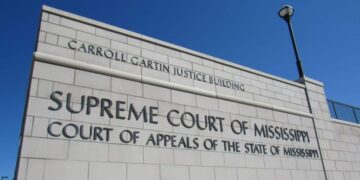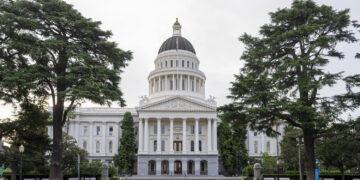U.S. District Judge Denise J. Casper issued a preliminary injunction today halting pivotal provisions of Trump’s March 25 executive order intended to restructure federal election rules. This marks the second significant judicial setback, intensifying a broader constitutional and political clash over presidential authority, states’ rights, and ballot access.
What Trump’s Order Sought to Change
Signed shortly after Trump’s false assertions of widespread election fraud in the 2020 race, the executive order aimed to:
- Mandate documentary proof of U.S. citizenship on the federal voter registration form.
- Force states to discard mail-in ballots not received by Election Day—even if postmarked on time.
- Direct the U.S. Justice Department to penalize—or withhold federal funding from—non-compliant states.
- Empower the Election Assistance Commission (EAC) to revise national registration forms without public notice-and-comment procedures.
Litigation Sparks and Judicial Pushback
Nineteen Democratic-led states, joined by civil rights groups, sued the federal government in April, arguing the orders unlawfully usurped state and congressional control over federal elections. Earlier, U.S. District Judge Colleen Kollar‑Kotelly in Washington temporarily blocked parts of the order, focusing on proof-of‑citizenship mandates tied to federal forms.
Judge Casper’s June 13 Ruling – Scope and Rationale
In resolving another round of legal pushback, Judge Casper delivered a decisive preliminary injunction:
- Citizenship documentation: She held that while citizenship is required to vote, mandating documentary proof via presidential decree encroached on Congress’s legislative authority and exceeded the EAC’s rulemaking power.
- Mail‑in ballots deadline: Casper agreed that federal law protects ballots postmarked by Election Day, and the Constitution grants states—not the president—the power to set receipt deadlines.
- Penalties and federal funding threats: The DOJ was barred from suing, levying penalties, or withholding funds from states that follow current state practices.
Casper underscored that the Constitution delegates authority over federal elections to Congress and the states, not the executive branch. She emphasized that changes via executive order were unconstitutional absent legislative sanction.
Political Reaction & Legal Implications
- States defending the injunction: California Attorney General Rob Bonta denounced the order as an illegal power grab, saying, “He is not a king… we will fight like hell” in court.
- Federal position: The DOJ, while defending the order as legal, acknowledged in court that the preliminary injunction might be premature until the EAC issued rules. Trump ally Bridget O’Hickey contended that DOI could issue informational letters instead of enforcement actions.
- White House messaging: A spokesperson asserted that proof-of-citizenship was “commonsense,” and pledged ongoing legal defense of the order.
Political analysts view this second injunction as a critical setback for Trump’s election policy ambitions, potentially delaying enforcement through the 2026 election cycle. It underscores that substantial shifts to national election procedures—especially those affecting ballot access—cannot occur via unilateral executive mandate.
Constitutional Stakes – Checks and Balances
Central to Judge Casper’s decision was the balance of federalism:
- The Constitution explicitly vests regulatory power over federal elections in Congress and state legislatures—not the president.
- Any substantive alteration in voter registration or ballot-handling processes requires legislative action, not an executive decree.
- This case reinforces judicial authority as a buffer against executive overreach, affirming that major procedural changes require due process—including notice-and-comment rulemaking.
Looking Ahead: Legal Strategy and Political Fallout
- Appeals: The federal government is expected to appeal to the First Circuit, arguing that the injunction will irreparably harm federal elections.
- Supreme Court prospects: Should the First Circuit uphold Casper’s ruling, the Trump administration may petition SCOTUS, raising high constitutional stakes before a sharply divided Court.
- Legislative avenues: Even if legal challenges continue, only Congress can enact binding changes to voter registration requirements or ballot deadlines. Trump and allies are weighing legislative strategies for future sessions.
Bottom Line
Judge Casper’s injunction delivers a sharp check on executive power, reaffirming that sweeping election reforms—including proof-of-citizenship mandates and ballot-timing restrictions—cannot proceed without congressional approval. With multiple challenges now underway, this dispute is shaping up as a landmark question of constitutional authority, federalism, and democratic integrity.
Source: AP News/ Reuters/ The Guardian

















